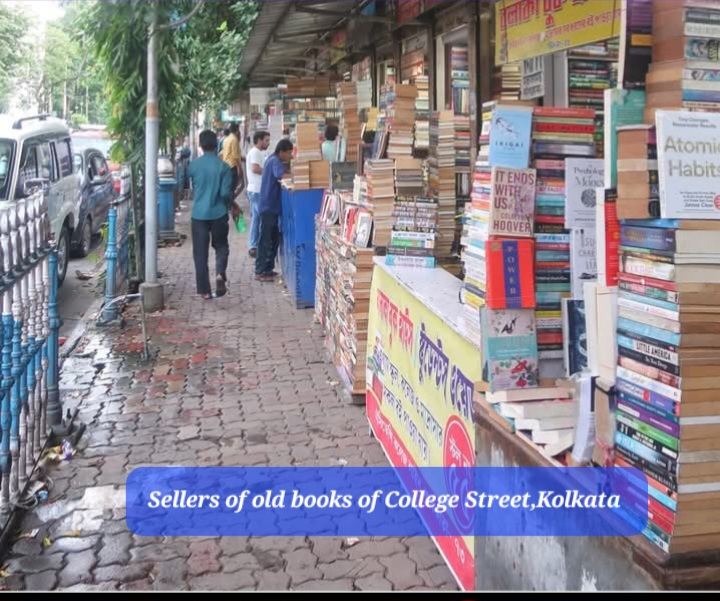College Street in Kolkata, usually referred to as Book Colony (Boi Para), has recently witnessed gloomy days due to the rapid adoption of technology among book readers. Once considered Asia’s largest second-hand book market, the heartbeat of this marketplace has waned due to the evolution of digital reading lifestyles. Empty bookstores, reduced visits by book lovers, and fading conversations stand as testimony to the present situation. This story traces the legacy, decline, and uncertain future of College Street’s iconic used book trade.
The legendary history of Kolkata’s College Street book market extends back to the early nineteenth century. The founding date of the market is unclear, but it has a close connection to the founding of Hindu College in 1817. This college represented a major turning point in the history of education, with the intention of providing the Hindu community with access to a liberal education. As the college and its surroundings expanded under the administration of Lord Wellesley, the street was renamed College Street. College Street has evolved into a hub of intellectual activity over time, with its numerous bookstores, educational facilities, and the well-known Indian Coffee House.
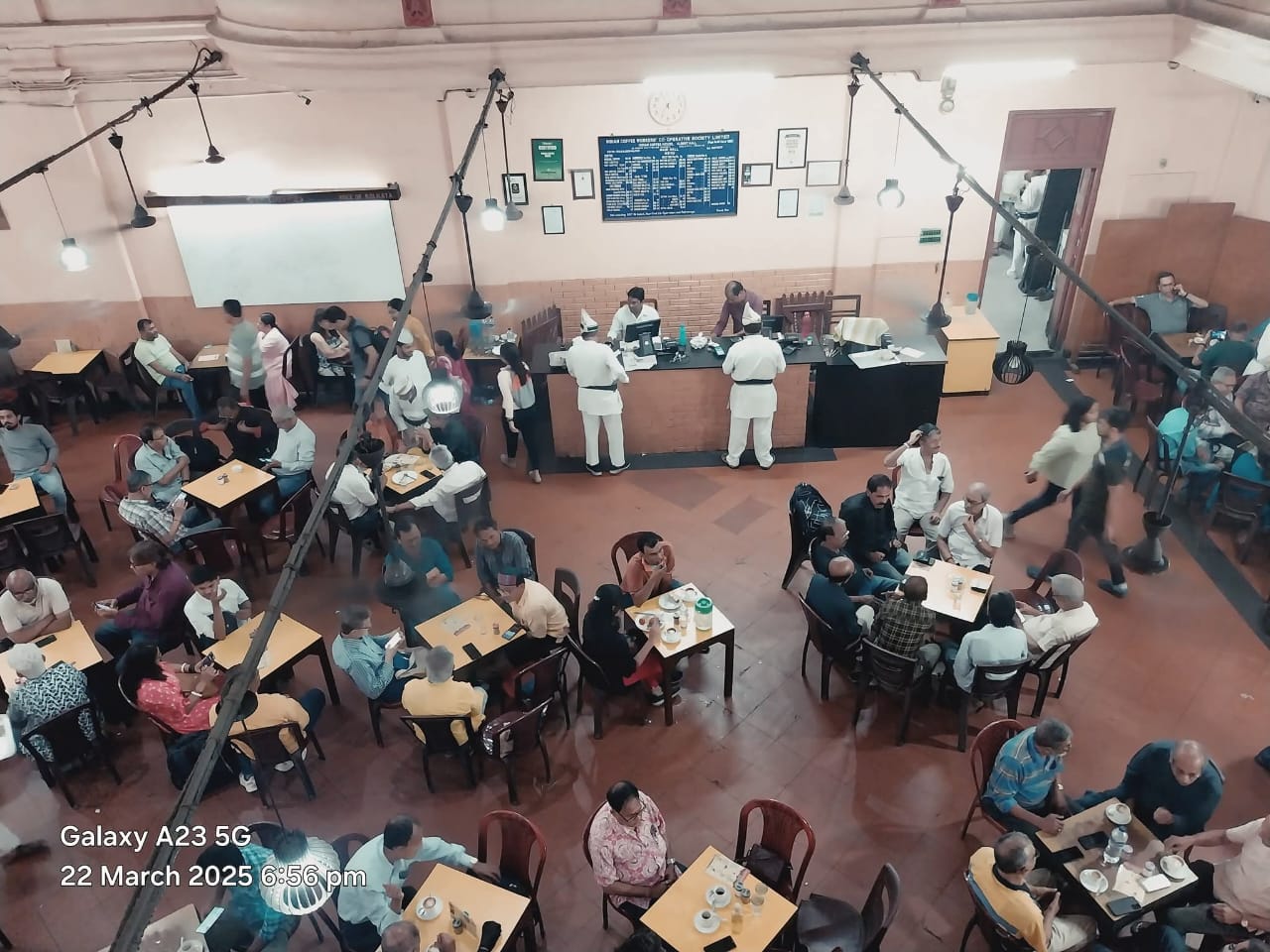
It took some time for College Street to grow into the largest old book market in Asia and the largest used book market globally. Its proximity to prestigious institutions like the University of Calcutta, Presidency University, and Calcutta Medical College contributed to its growth as a literary haven.
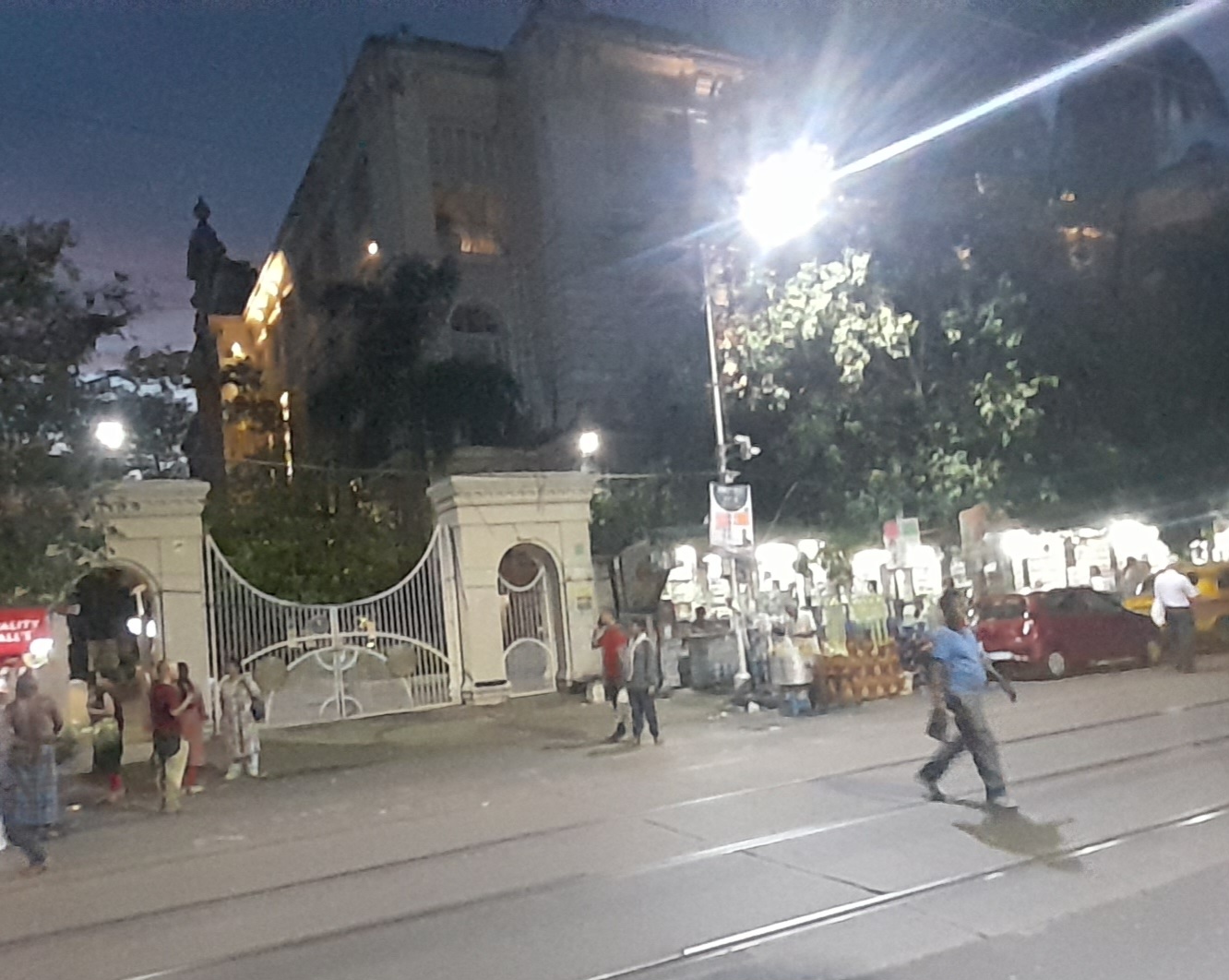
The passion of old book sellers and their emotional attachment motivated them to stay in this business for many generations, more than any financial gain. These vendors are looking into other ventures to make ends meet as stalls remain empty, and the rich cultural heritage of Kolkata fades. College Street is like a second home for academicians, intellectuals, students, and book enthusiasts from all over India.
Global attention was drawn to the market because of its cultural significance. German novelist, poet, playwright, painter, and graphic artist Günter Grass, who was awarded the 1999 Nobel Prize in Literature, made a few trips to Kolkata. He explored Kolkata’s rich cultural heritage for six months during his most recent visit in 2005, and he often visited the used book shops on College Street. Renowned filmmakers Satyajit Ray and Mrinal Sen also occasionally visited this historic book market.
Eighty-one-year-old Pijush Chandra Saha has operated a small old bookstore since 1967. Saha opened this shop using his father’s savings and loans from relatives. He managed to repay all of his debts in three years. He witnessed the successful days of College Street, during which his daily sales earnings surpassed one thousand rupees. He told The Voices during the interview that the day’s total sales were just 80 rupees. He claims that several factors, including the popularity of e-books, the accessibility of pirated copies at low prices, and shifts in reading preferences, have contributed to this sharp decline. Additionally, the resale value of textbooks has been greatly diminished by frequent modifications to university and school curricula. Pijush shared a story about a scholar who came across a 1940 first edition of Einstein’s book. In his gloomy conclusion, he said that the pavement would probably be deserted in five years. The market, which was once one of the city’s busiest spots, is now often deserted.
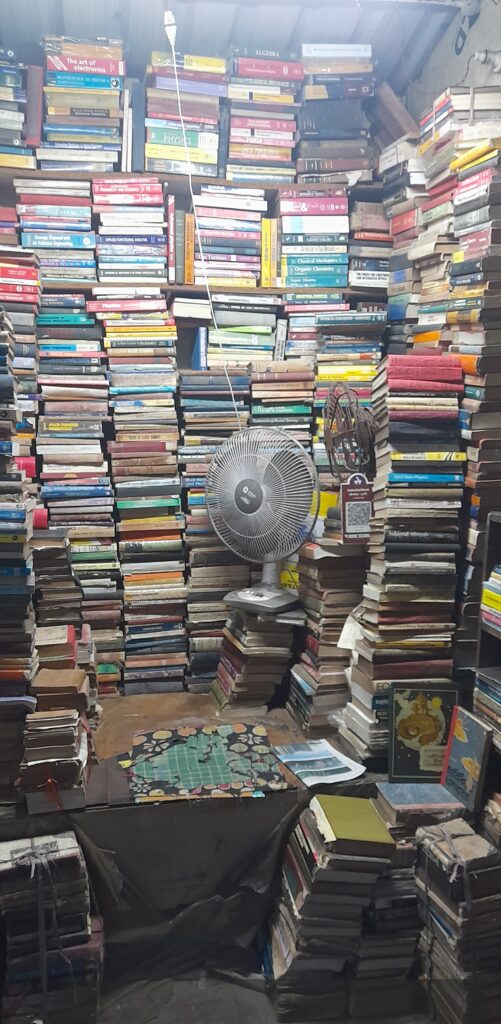
Forty-five-year-old Fariyaz Midya inherited his father’s used bookshop twenty-three years ago. He is less negative, even though he acknowledges the difficulties Pijush Chandra Saha brought to light. He observes a consistent market for historically significant books and used English novels. However, he now earns only between Rs. 250 and Rs. 300 a day, down from Rs. 900 in 2005. Even though there are random bulk sales, he blames the drop on the rising acceptance and affordability of e-books. Fariyaz remains dedicated to the business despite doubts about its long-term sustainability, driven by the intellectual satisfaction and respect he receives from book lovers. He also acknowledges the strong emotional ties he developed with his regular customers during the COVID-19 lockdown.
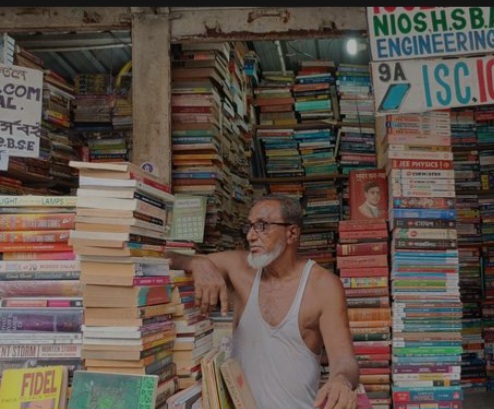
In the 1990s, when social and digital media were still in their infancy, Suranjana Das Gupta would frequently spend her afternoons and evenings perusing old books near the Presidency College grounds. When Ritoprova Sen, a PhD candidate at JNCASR Bangalore and a former student of Presidency College (now University), is in Kolkata, she always makes time to visit College Street. She would spend hours in the used book market during her first year, buying journals and reference books at reduced costs. She does not see any hope for the survival of the used book industry, though, noting that there is no longer any need to look for used books at reduced prices.
The availability of e-books, shifting reading habits, and declining buyer numbers are some of the major issues facing College Street’s used book market. The challenges faced by used book sellers have been exacerbated by the difficulties encountered by mainstream publishing houses. Many vendors are struggling for survival due to a lack of resources, risking the rich history of this famous market.
Copy Editor: Ajeena Rose

